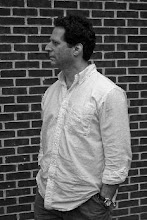(Warning: major spoilers about the plot of Atlas Shrugged follow. This is in addition to the usual spoilers about the meaning of life and stuff.)
This little video snippet shows my namesake explaining his path to Zen enlightenment—the buttering of French bread. Robert Pirsig's picked a killer title for his 1974 novel Zen and the Art of Motorcycle Maintenance, but the reader who looks for much of anything about Zen is going to be disappointed (as is the reader who looks to learn anything about motorcycle maintenance). My bookshelf holds another book Zen of Code Optimization, which I suspect to be almost the exact opposite of Zen, in that it relies on meticulous analysis. Leo Babuta's Zen to Done productivity system is Zen-like in spirit inasmuch as it tries to simplify as much as possible, but as far as I can tell has no real connection with Zen philosophy.
Don't get me wrong. All the foregoing are worthy products, and it doesn't bother me that the "Zen" buzzword has become something of a marketing gimmick—although a Zen priest might take a different view. It seems a harmless and possibly amusing superficiality, like the legendary Japanese department store that used a crucified Santa Claus as a Christmas decoration.
Then again, the word Zen has passed into common usage as an everyday adjective, difficult to define precisely (which is what makes it useful), but generally referring to that which is holistic, surprisingly indirect or even seemingly paradoxical, as when Mr. Miyagi teaches karate through car-waxing. Come to think of it, this doesn't bother me either.
What will make me snort and spit out my coffee is when someone claims with a straight face to be a Zen adherent when all they have done is read a book or two, or perhaps not even that. It's as if watching every episodes of "Hogan's Heroes" qualifies one to march in the Veteran's Day parade.
This came to mind again recently when I saw the trailer for the new Atlas Shrugged movie coming out on April 15. From the trailer I can't tell whether the version of Objectivism presented is the genuine, Ayn-Rand version, or the superficial version that's been going around for the past few years, which we might call the Glenn Beck version.
Among Atlas Shrugged discussion group I discovered that two people might agree on a certain tenet of the book but disagree diametrically on how to map that point into the real world. Is Bill Gates a John Galt or a Wesley Mouch?
In the aftermath of the stock-market crash a couple of years ago, we were presented with the spectacle of incompetent investment bankers, who got tired of reading bad stuff about themselves in the newspapers, threatening to "Go Galt"—that is, renounce their chosen profession and leave the rest of us to struggle along without them—to which my unforced reaction was always Yes, please! Put that in writing and we'll sign it.
Will Wilkinson put it neatly: The point is that you are not John Galt. The point is that you are, at your best, Eddie Willers. Zen and Objectivism, though very different philosophies, seem to share a common misfortune of attracting dilletantes who like the charisma factor but reject (or more likely are ignorant of) the discipline demanded of real adherents.
One of my friends who is a genuine Objectivist remarks with amusement on the many politicians and pundits these days who claim to be both serious Objectivists and devout Christians. I mean, have you read Atlas Shrugged, people? (In all seriousness, I suspect probably not.) It would be difficult to find a more implacably contradictory pair of philosophies.
But then again, such people seem to flunk the Christianity test as well as the Objectivist test—that inconvenient business about selling all you have and giving to the poor, or refraining from casting the first stone. One benefit of embracing two contradictory creeds is that one can piously cite a justification for whatever shallow, self-indulgent whim possesses one at the moment. I guess that's the point.
One of my friends who is a genuine Objectivist remarks with amusement on the many politicians and pundits these days who claim to be both serious Objectivists and devout Christians. I mean, have you read Atlas Shrugged, people? (In all seriousness, I suspect probably not.) It would be difficult to find a more implacably contradictory pair of philosophies.
But then again, such people seem to flunk the Christianity test as well as the Objectivist test—that inconvenient business about selling all you have and giving to the poor, or refraining from casting the first stone. One benefit of embracing two contradictory creeds is that one can piously cite a justification for whatever shallow, self-indulgent whim possesses one at the moment. I guess that's the point.




No comments:
Post a Comment